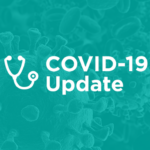LONG HAUL COVID TREATMENT ORANGE COUNTY URGENT CARE
I am Dr. Gregg DeNicola and I am a Covid Long Hauler.
I had my first positive PCR on December 13, 2020.
I entered the hospital with double Covid pneumonia December 22, 2020 and was transferred to the Covid ICU.
I was discharged December 31, 2020.
I tested negative January 25, 2021.
I was unable to leave the couch and walk around the house freely-still on oxygen – until January 30, 2021.
I was able to stay off oxygen for 24 continuous hours for the first time on February 28, 2021. Yes, 10 weeks tethered to a plastic tube up the nose.
I was able to leave my home and run errands unattended March 13, 2021.
Exactly three months after testing positive for Covid.
I felt I had been given my life back.
On Christmas Eve and Christmas Day 2020 I knew I was truly fighting for my life. New Year’s Day I couldn’t walk or even stand up by myself.
But by St. Patrick’s Day, I was able to shop alone for the corned beef, make Reubens unassisted for dinner and even enjoy a green beer “or two!”
I was cleared of blood clots, cardiac, or lung complications in April.
Life was good, God was great, and I could finally start planning the next chapter of my life.
What do “they” say about if you want to make God smile, tell Him your plans?
“They” are so right.
My first sign of Long Haul Covid was a mid-day fatigue, a new thing I experienced in April. I didn’t think much of it- I just needed an afternoon nap. I should have known something was up, since I had never taken an afternoon nap, even as a kid. It got worse. I was ok for 3-4 hours, then BOOM- I needed to lie down and snooze. Totally out of character for me.
In May, I noticed short anxiety episodes. Less than 10 minutes. Once or twice a week. In June they were 2-3 times a week, and morphed into agitation, and even anger.
The symptoms have continued unabated. On three occasions, I lashed out in anger so severe I had to formally apologize to my colleagues and family. Not for what I was angry about- I meant what I said. But loud outbursts complete with cussing was not my style and I was concerned and ashamed by them. They were totally spontaneous and unpredictable.
Even at their worst, these agitation attacks were short, rarely over 45 minutes, then -Boom-back to normal.
In June I noticed I was tearing. I thought it may be pink eye. But since I also felt hopeless and sad, I knew it was another Long Haul finding- Depression. Instead of two times a week, like the agitation, these episodes were daily. But less than an hour, sometimes only 10-15 minutes. I called them “depression attacks,” and once passed, all was good again. In my years of practice, I was unfamiliar with depression being an “attack.” But we are now finding with Long Haul PTSD, they are relatively common. They could come morning or evening, whether I’m alone or at work, and in response to nothing. They resolve spontaneously, even if I am just sitting looking at the floor.
In July, the third Long Haul symptom appeared- insomnia. Sometimes it took three hours to fall asleep. Other times, I’d awaken at 3 AM and lie there until sunrise- eyes wide open the whole time.
Turns out, mental health complaints are the becoming most common form of Long Haul Covid. Experts are calling it a type of PTSD. It is linked to how severe your Covid case was. Mild cases, mild Long Haul. More severe cases, more severe Long Haul.
Overall, if you have had Covid, you have a 20% chance of having a Long Haul case.
Hospitalized patients have a 50% chance of getting Long Haul Covid.
ICU patients? Up to 90% in some studies.
Short attacks of agitation, anger, depression, and brain fog are a common presentation. It appears to be linked to neurotransmitters that have gone haywire from the spike protein in Covid.
Besides anxiety, depression, and insomnia there are two other PTSD symptoms noted with Long Haul Covid.
It figures the “Man Upstairs” chose not to give me the one I actually wanted – anorexia and weight loss. I’d have traded all of my symptoms for a good 10 pound trim.
And the last symptom may be the most common- the “brain fog” or memory loss. My brain still has its fast ball, and I am fortunate to have avoided this one since hanging on to your brain was my most important goal post Covid.
Long Haul Covid has several definitions from the experts. A consensus indicates symptoms are 12 weeks past a negative test and lasting anywhere between 2-12 months. It does not appear to be a permanent condition.
Treatment is individualized. For the cardiac, pulmonary, and blood clotting issues, medications are available and work well. For the fatigue and mental issues, especially brain fog, no therapies are proven successful, except anecdotally.
So simply taking a Xanax for anxiety, Zoloft for depression, and Ambien for sleep is not currently advised.
Bedrest, psychotherapy, and anger management? Nah.
The best and safest treatment is simply “TOT”-Tincture of Time.
Yup, just waiting for those pesky neurotransmitters to fall in line and quit bouncing around.
At PDQ, we diagnose Long Haulers often daily. We even found ourselves creating a protocol and treatment algorithm specially for Long Haulers.
To be sure, our “Long Haul Clinic” is growing rapidly.
Many times, patients are surprised to finding out other Post Covid patients have the same weird issues. Depression attacks, memory loss, appetite loss, heart palpitations or a persistent cough can be symptoms to start a support group.
Despite increasing numbers, health care providers don’t know the long-term answer. Since Long Haul has only been a “thing” this year, we don’t have a lot of data on it. As more people recover from Covid, the data will increase exponentially. Until then, “Long Haul Clinics” such as the one at Caduceus will be working hard to accumulate that data.
Of note, the NIH has just been granted $1.5 billion to study and make recommendations about Long Haul Covid.
In Summary:
- “Long Haul Covid” is diagnosed when symptoms appear 12 weeks or longer from testing negative
- Symptoms of Long Haul are:
- Fatigue
- Blood clotting
- Cardiac symptoms, especially palpitations
- Pulmonary symptoms, especially cough and shortness of breath
- Mental health issues, i.e. PTSD symptoms
- These can last 2-12 months
- Neurotransmitter errors are involved
- Treatment currently is trial and error
And regarding PTSD symptoms are:
- Anxiety/agitation/anger
- Depression
- Insomnia
- Anorexia/weight loss
- Brain fog/memory loss
- Typical medications for these symptoms are probably not effective.
- Unlike non Covid anger and depression conditions, these can be daily, appear suddenly without provocation, and last under an hour.
- These symptoms appear to be strongly linked with high intelligence and good looks. (OK OK… just seeing if you’re paying attention!)
I share my story in hopes other Long Haulers -who have been hiding their symptoms- will talk about them. Yes, it is difficult. Yet in many ways, friends and family support can be healing. In fact, I am feeling a little better just writing this blog.
In my case, the PTSD symptoms have not changed since they peaked in August. I was pretty excited this week when I had not had a depression attack in three days! But yesterday and today it returned and now I am back to square one. This year I’m hoping for the best Christmas present God can give me- no more Long Haul symptoms by Christmas Day. Considering the scare I had last Christmas, it would be fitting.
Maybe Jerry Garcia was being prophetic about Long Haul Covid when he sang:
Sometimes, the lights all shining on me
Other times- I can barely see!
Lately it occurs to me
What a long, strange trip it’s been!
Gregg DeNicola MD
PDQ Urgent Care & More & PDQ Telehealth
Learn more about Long Haul Covid treatment and how we can help.



